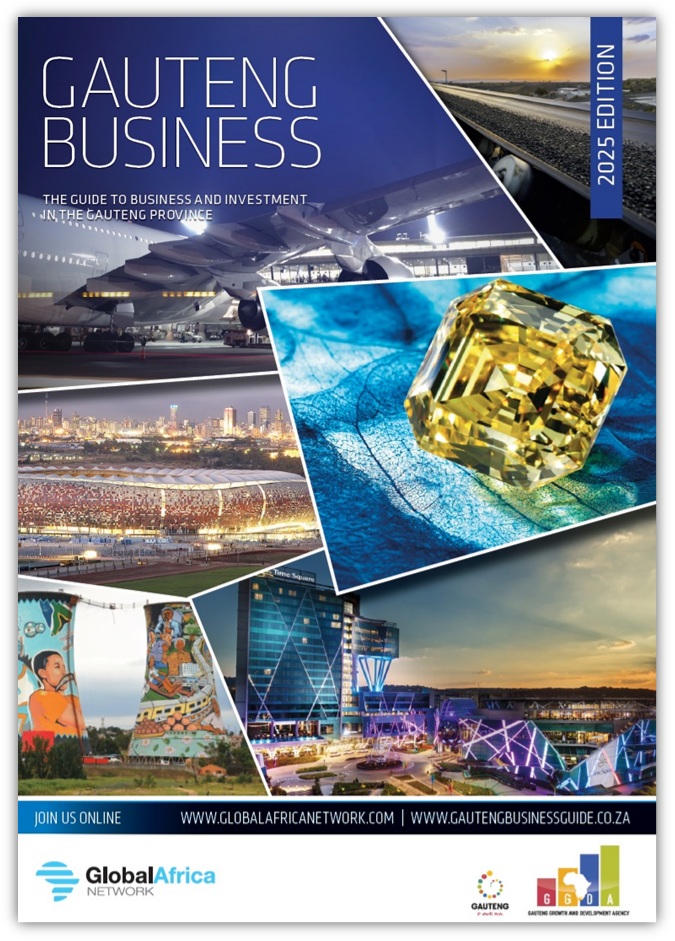By John Young
mWhile uldersdrift may not be the first name to think of as a conference venue of national importance, Garten is full of surprises. Of the nine venues listed by the South African National Treaty Agency for securing 25 international business events between 2024 and 2029, four are in Gauteng, one of which is MulderSdrift. As expected, the others are three major metropolitan municipalities: Tshwane, Ekurhuleni and Johannesburg.
The 25 large conferences will generate R240 million for the South African economy and help maintain the top rankings in Africa and the Middle East in a 2023 list compiled by the International Conference and Convention Association (ICCA).
MulderSdrift is located a short distance northwest of Johannesburg near Lanseria Airport and forms part of the cradle of the World Heritage Site of Mankind. Nearby Wonder Cave is one of the best human fossil sites in the world, and is an entertainment centre run by Tsagosan, run by 30 wedding and conference venues, breweries and Silverstar Casino and Entertainment Centre, where visitors and representatives can experience and enjoy.
Metropolitan Conferences and Exhibition Centres can provide larger gathering halls and venues, such as the Sandton Convention Centre and the Gallagher Estate, which often host large gatherings. Gauteng Convention Bureau, a business unit within the Gauteng Tourism Authority, supports the business events sector.
One of the biggest events held in Gauteng was the fifth series of five South African Investment Conferences in 2023. Of that, about 1.1-1 trillion will be fully pledged, of which around R22 billion will find a way to Gauteng.
Business Facilitation
In fiscal year 2023/24, more than R6.8 billion of investments from 261 foreign companies was made in the state, creating approximately 23,000 direct jobs. As of February 2023, approximately 5 million people were employed in Gauteng.
Gauteng accounts for 45% of South Africa's manufacturing capacity, making it the fourth largest, accounting for 14.5% of Gauteng's official sector production. One of the nine jobs in the state is created in the sector. According to the Gauteng Growth and Development Agency (GGDA), six of Gauteng's 10 foreign direct investment (FDI) projects are flowing into the manufacturing sector and its sub-sectors.
GGDA is an implementing agency aimed at promoting business realization, developing small and medium-sized micro-companies (SMMEs) and promoting investment and job creation.
Focused support for these specific sub-sectors is aimed at promoting other investments, such as the automotive sector, mineral beneficiaries, capital equipment, agricultural processing, pharmaceuticals, BPOs, ITC services, tourism, and the knowledge economy.
GGDA subsidiaries include Innovation Hub (Technology), Automotive Supplier Park (ASP), or The Automotive Industry Development Center (AIDC), which manages Tambo SEZ, Vaal SEZ and Constitutional Hill.
The Johannesburg Development Agency (JDA) plays a similar role to the Johannesburg City Development Agency. The focus of the JDA is to help create resilient, sustainable and livable urban areas in identified transport nodes and corridors. In 15 years, 387 projects were implemented.
Growth Engine
Gauteng is South Africa's smallest state in terms of land, but in every other respect it is a giant. At 1,876 km², the state accounts for just 1.5% of South Africa's territory, but its economic impact is disproportionately large. In 2023, the state economy was valued at R2.4 trillion, with the state responsible for 34% of South Africa's gross domestic product (GDP).
Gauteng is a leader in a wide range of economic sectors, including finance, manufacturing, commerce, IT and the media. The Market Research Bureau (BMR) shows that Gauteng accounts for 35% of total household consumption in South Africa.
The main economic sectors are finance, real estate and business, manufacturing, government services, wholesale, retail, automobile trade and accommodation. The creative industry (including the advertising and film sectors) is making a major contribution to the state economy.
Financial services and commerce dominates in Johannesburg. JSE, Africa's largest stock exchange, is located in Sandton, with several new stock exchanges recently receiving licenses. Tshwane (including Pretoria) has many government services and is the hub of the automotive industry and many research institutes. Both of these cities are education centres.
Ekurhuleni Metropole has the largest concentration of manufacturing concerns in the country, from heavy to light industries. The western part of the state is primarily related to mining and agriculture, while the southern part has a combination of heavy industrial work related to corn agriculture, tobacco production, and steel and iron-like operations.
Individually, the largest Garten cities contribute to the national GDP of Johannesburg (15%), Tshwane (9%) and Ekurhuleni (7%).
Power Plan
National Utility Eskom has significantly improved performance during 2024, but measures have been put in place to increase and reduce electricity costs. The need to move towards a more environmentally friendly energy source is also urgent.
The biggest of these are private public partnerships taking place on lands belonging to Sibanye-Stillwater, a global resource company that began life as Gauteng Gold Miner. The solar power plant, also known as the solar farm cluster, will be developed in Merafong local government, with multiple contractor building facilities. The plant is expected to produce 800mW of solar power on the grid.
The solar power plant, also known as the solar farm cluster, will be developed in Merafong local government, with multiple contractor building facilities. The plant is expected to produce 800mW of solar power on the grid
Public facilities such as clinics will be provided with solar panels and battery storage systems. City Power will develop Alexandra's pilot microgrid project aimed at meeting the basic power needs of low-income households.


